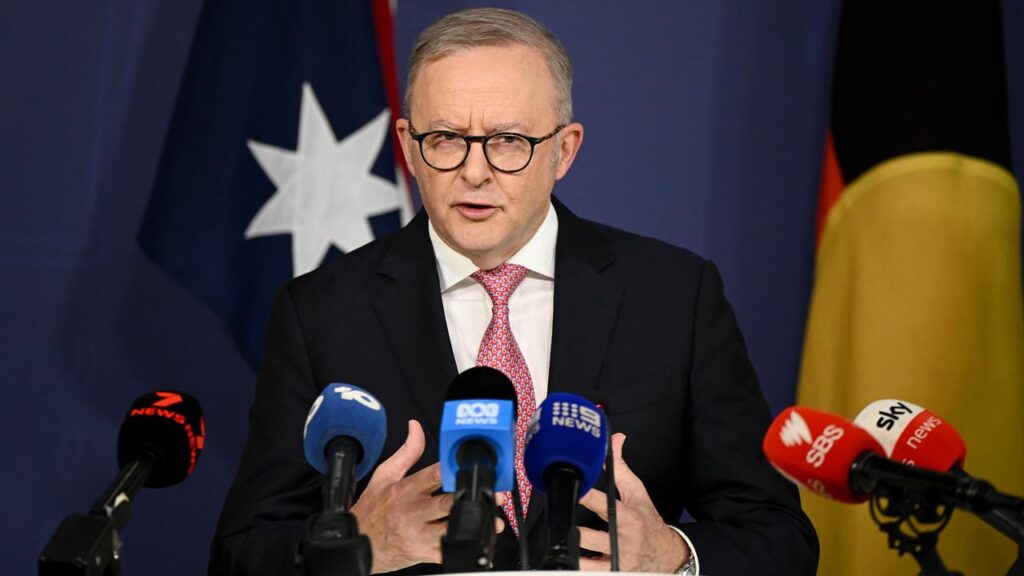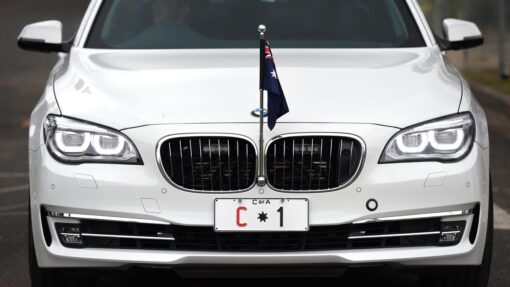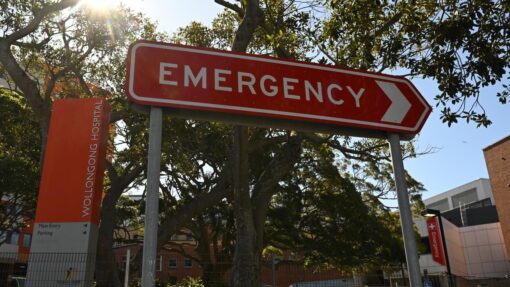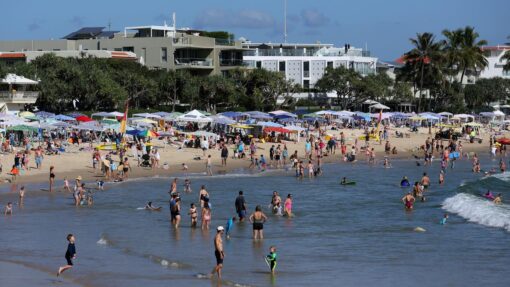Religious protections push to combat Islamophobia rise
Dominic Giannini and Tess Ikonomou |

Australian Muslims would be granted stronger religious freedom and racial discrimination protections under a sweeping plan to tackle Islamophobia.
Special envoy to combat Islamophobia Aftab Malik recommended federal religious freedom laws, updated racial discrimination protections and a review of counter-terrorism policies for prejudice against Muslims.
An at times emotional Mr Malik outlined the violence, discrimination and prejudice the Muslim community faced when his report was released on Friday.
“Muslim women in particular face the brunt – many are physically assaulted, spat or shoved or subjected to threats simply for wearing a headscarf,” he said alongside the prime minister in Sydney.
“This prejudice undermines the core value of mutual respect, fairness and compassion.
“It also disproportionately disenfranchises Australian Muslims, who are not asking for special treatment, but equal recognition of harm.”
Islamophobic incidences had “skyrocketed”, with the Islamophobia register recording a 150 per cent increase by November 2024, Mr Malik said.
One in three Australians had expressed negative views about Muslims, with the community rated the most negatively viewed group, research found.

“The reality is that Islamophobia in Australia has been persistent, at times ignored and other times denied, but never fully addressed,” Mr Malik said.
The special envoy declared the scourge remained “a deeply ingrained societal challenge” and needed to be tackled with the same urgency that was given to other forms of discrimination.
He said the report was a “historic opportunity” for the nation to address Islamophobia.
“It’s a moment where we decide who we are as a country, and whether we are prepared to take the necessary steps to ensure that every person in Australia, regardless of faith, ethnicity or background, is safe, valued and treated with dignity,” he said.
Prime Minister Anthony Albanese said Australia “must stamp out the hate, fear and prejudice that drives Islamophobia and division in our society.”
“The targeting of Australians based on their religious beliefs is not only an attack on them, but it’s an attack on our core values,” he said.

Recommendations were broken down into specific areas, including better hate crime data collection by law enforcement and mandated religious sensitivity training for all Australian Federal Police officers.
Counter-terrorism legislation was singled out because of “narratives depicting Islam as intrinsically associated with violence, extremism
and terrorism” after attacks.
Mr Malik called for a review to identify potential discrimination in the application of national security laws and the creation of a panel of diverse Muslim community representatives to advise on future reforms.
Recommendations included formally recognising the International Day to Combat Islamophobia on March 15, establishing a parliamentary inquiry into Islamophobia and creating a duty for employers to stamp out racial discrimination.
Strengthening Australia’s online safety laws to stamp out hate, addressing foreign actors spreading Islamophobia as part of broader foreign influence operations and more funding to research evidence-based programs to combat Islamophobia were also flagged.

Mr Malik called for clarity on migration law to ensure the minister could refuse visas to people promoting hate speech, “including those with a history of promoting Islamophobic hatred”.
Mr Albanese said he would review the 54 recommendations as he remained non-committal to reintroducing religious freedom laws shelved by Labor when an agreement couldn’t be reached with the coalition.
“I have said to faith leaders as well that I certainly support religious discrimination legislation, but I don’t support starting a debate that leads to rancour,” he said.
But he said he hoped to work with Sussan Ley as a new opposition leader in the area.
The recommendations did not go as far as anti-Semitism envoy Jillian Segal’s report, which called for the government to cut funding to universities, programs or academics that enabled or failed to act against anti-Semitism.
AAP


